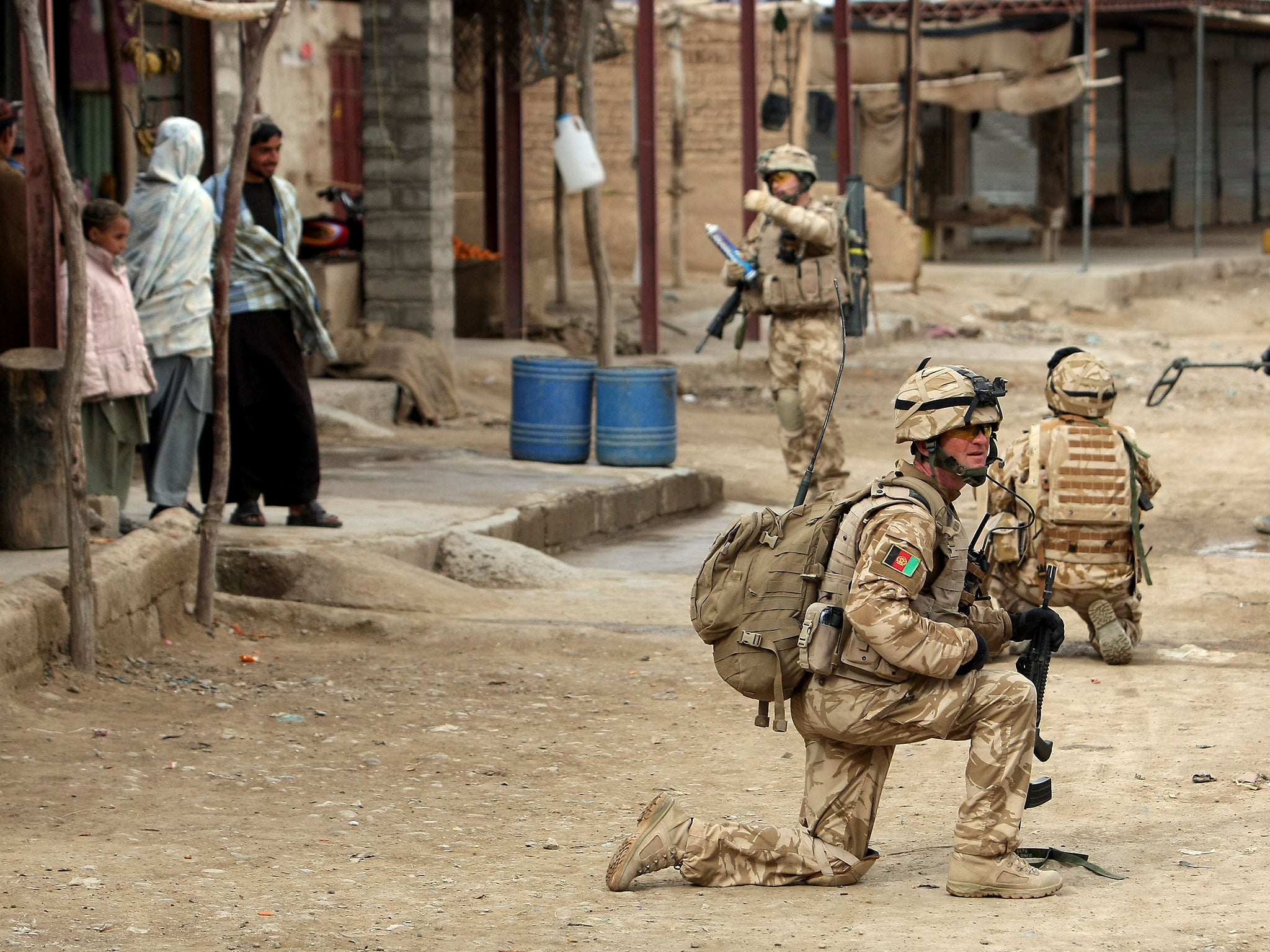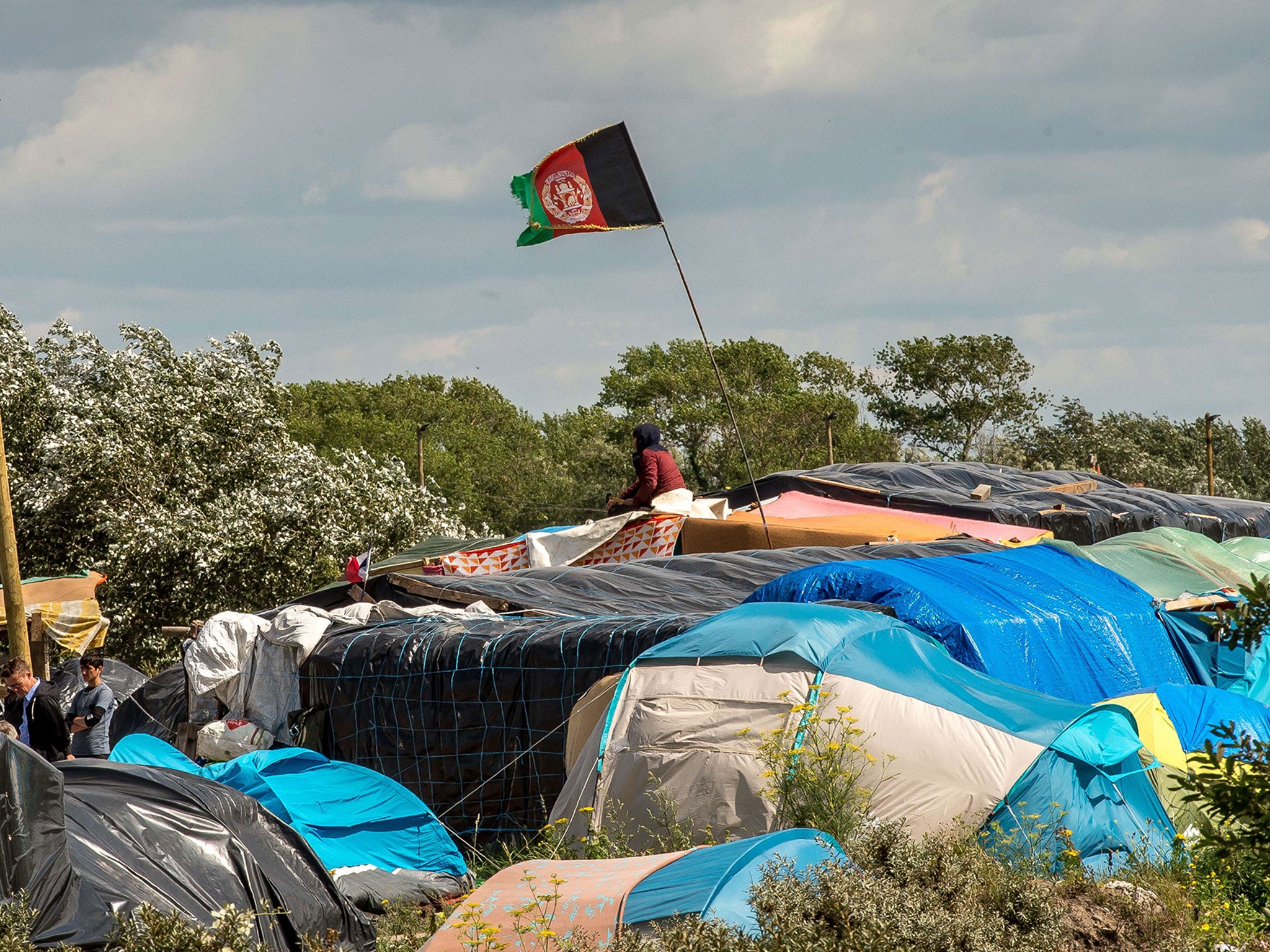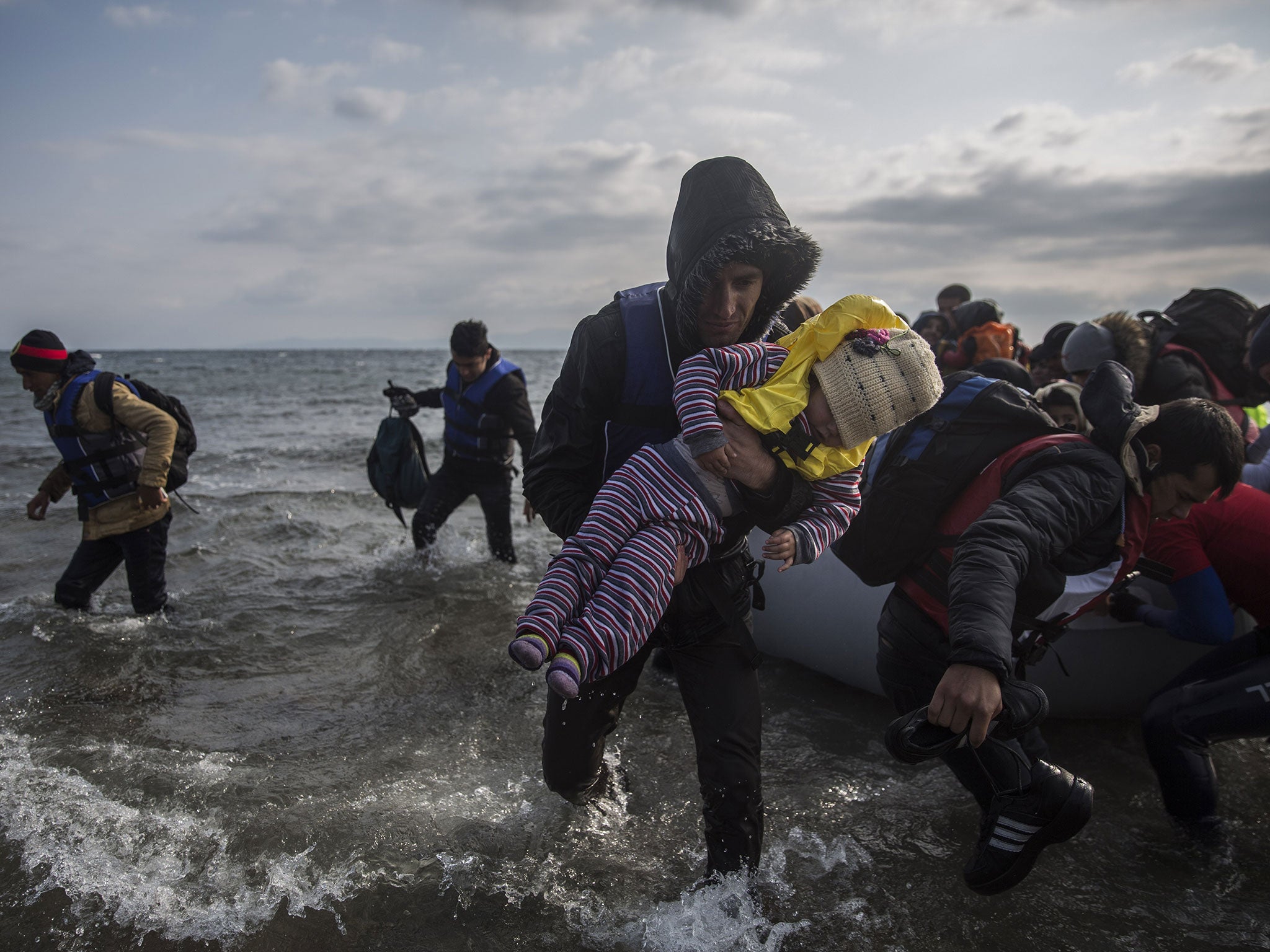Afghanistan war: Britain turning away majority of refugees fleeing conflict despite sending troops to Helmand
Charities criticised the figures as British troops are sent back to Helmand province

Your support helps us to tell the story
From reproductive rights to climate change to Big Tech, The Independent is on the ground when the story is developing. Whether it's investigating the financials of Elon Musk's pro-Trump PAC or producing our latest documentary, 'The A Word', which shines a light on the American women fighting for reproductive rights, we know how important it is to parse out the facts from the messaging.
At such a critical moment in US history, we need reporters on the ground. Your donation allows us to keep sending journalists to speak to both sides of the story.
The Independent is trusted by Americans across the entire political spectrum. And unlike many other quality news outlets, we choose not to lock Americans out of our reporting and analysis with paywalls. We believe quality journalism should be available to everyone, paid for by those who can afford it.
Your support makes all the difference.The worsening situation in Afghanistan may have caused the return of British troops to Helmand but the Government apparently does not deem the conflict serious enough to accept the majority of refugees fleeing the country to seek safety in the UK.
While almost 90 per cent of Syrian asylum seekers and three quarters of Eritreans have their applications granted, the figure for Afghans stands at little over a third.
Debora Singer, from UK charity Asylum Aid, said there was a “culture of disbelief” at the Home Office that leaves vulnerable refugees struggling to prove their right to protection.
“The UK grant rate (for applications) on average is 41 per cent but the average for Afghans is much lower,” she told the Independent.
“That gap often demonstrates the level of risk perceived by the Home Office."

Ms Singer, who is the charity’s policy and research manager, said a disproportionately high number of Afghan refusals are overturned on appeal – more than a third.
“The issue we’re most concerned about is asylum seekers facing a culture of disbelief,” she added.
“What we would like the Home Office to establish is a culture of protection.
“When you see the way victims of sexual violence are treated by police, there’s a lot more talk about starting to believe the victim as a basis for the investigation but there hasn’t been our experience with the Home Office looking at asylum claims.”
Asylum Aid, which provides free legal representation and advice for refugees in the UK, said it is handling many cases involving teenagers, children, victims of sexual violence and torture.

While much of the international focus on the ongoing crisis has been on Syrian refugees, they make up under a half of the one million migrants and asylum seekers who have arrived on Europe’s shores this year.
The next largest group is Afghans, who make up 21 per cent of arrivals coming over the Mediterranean and Aegean Sea according to United Nations (UN) statistics.
Their treatment varies wildly through Europe, with Macedonia and other eastern European nations on the long Western Balkan route grouping Afghans with Iraqis and Syrians as the only three nationalities they will allow to pass through, while other nations accept just three in 100 Afghans as refugees.
Laura Padoan, from the UN’s refugee agency (UNHCR), told the Independent that the number of refugees from Afghanistan arriving on European shores had been rising rapidly over recent months and appeared to be linked to the renewal of the Taliban’s bloody insurgency.
“It may take some time to see the effect that has on the numbers in Europe,” she said. “The UK will take some time to have a major impact as refugees journey across the continent.”
Sweden has so far been the main destination for Afghan asylum seekers, taking three times as many refugee applications in October compared to the month before.
Most of those arriving are men but more than a third entering the EU are unaccompanied children and teenagers.
Italy grants 97 per cent of asylum applications from Afghan refugees, while the figure in Hungary is just three per cent, Ms Padoan said.
“The average across Europe is low, under 60 per cent,” she added. “Perhaps that is what makes some asylum seekers feel they don’t stand a chance.”
Ms Padoan said the UNHCR believes all applications should be considered on individual merit but that the Government should also consider the changing security situation on the ground.
A minority of Afghans are among asylum seekers who have been caught pretending to be Syrian in the belief it will secure them better treatment in Europe and the right to stay.
The Independent met Iraqi and Afghan migrants arriving in Lesbos who said they knew people attempting the deception and a Syrian refugee told Sky News the practice was being continued by some fellow asylum seekers he met at a hostel in Croydon.
Another man admitted changing his stated nationality depending where he was on his journey to the UK, saying: “In Greece, I say I am from Syria.”
Pledges by the UK and other nations to take refugees specifically from Syria sparked accusations that governments are driving even migrants with legitimate claims to lie about their nationality.
To be recognised as a refugee by the British government, an applicant must be able to prove they are unable to live safely in their home country because of conflict or persecution.
The application process includes language tests, background checks and extensive interviews by specialists.
A spokesperson for the Home Office told the Independent: “The United Kingdom has a long and proud history of offering sanctuary to those who genuinely need our protection.
“All claims for asylum are considered on their individual merits, and where people establish a genuine need for protection from persecution, refuge will be granted.”
The Ministry of Defence said British troops have been sent back to Helmand to play an “advisory role” to Afghan forces desperately trying to stop the Taliban’s renewed advance.
Although UK combat operations officially ended in Afghanistan in October last year, around 450 personnel remain working with the Afghan National Defence and Security Forces and security ministry.
Join our commenting forum
Join thought-provoking conversations, follow other Independent readers and see their replies
Comments